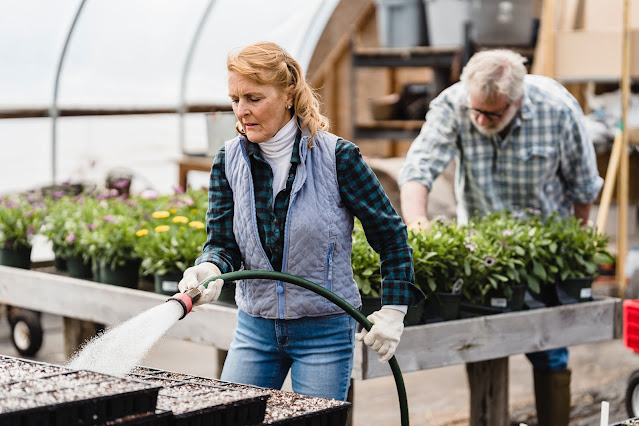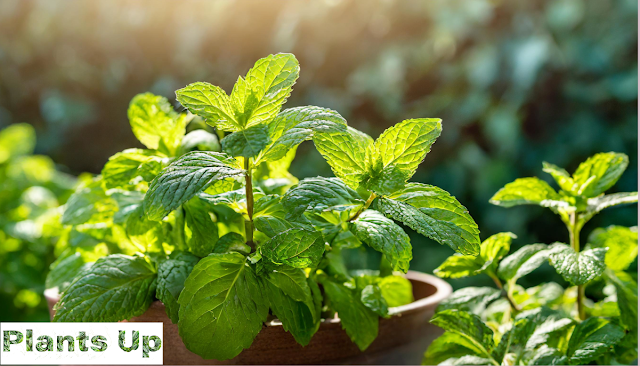 |
| Container Gardening |
Container gardening is a popular way to grow plants in a limited space, and it is an excellent option for those who live in apartments, condos, or homes without yards. Container gardening can be a fun and rewarding way to beautify your living space, create an edible garden, or grow plants that might not thrive in your climate.
In this article, we will explore the basics of container gardening, including selecting the right containers, soil, and plants, and provide tips for maintenance and care.
Choosing Containers
When it comes to selecting containers for your container garden, the options are endless. However, there are a few things to consider before you start shopping. First,
consider the size of the container. The size of the container will determine how much soil the container can hold, which will, in turn, determine what type of plants you can grow. Additionally, the container should have adequate drainage holes to allow excess water to drain away.
Selecting Soil
The soil you use in your container garden is essential to the health and growth of your plants. The soil should be rich in nutrients, well-draining, and lightweight. It is recommended to use a high-quality potting mix specifically formulated for container gardening. The potting mix should be replenished annually, as nutrients can become depleted over time.
Choosing Plants
When selecting plants for your container garden, consider the size of the container, the amount of sunlight the plants will receive, and the climate in your area. Some plants that are well-suited for container gardening include herbs, vegetables, and flowers. If you are uncertain which plants will thrive in your container garden, consult with a local nursery or garden center.
Maintenance and Care
Maintaining and caring for your container garden is essential to ensure healthy growth and longevity. Proper watering, fertilization, and pruning are necessary. Water your plants when the top inch of soil is dry, and be sure not to overwater, as this can lead to root rot. Fertilize your plants with a balanced fertilizer every two weeks during the growing season. Prune plants as necessary to promote healthy growth and prevent overcrowding.
Some additional points
Choosing the right container: The size and material of the container can greatly affect the growth of the plant. It is important to choose a container that is big enough to accommodate the root system of the plant and has proper drainage.
Soil mix: The type of soil mix used in container gardening can play a crucial role in the success of the plant. It is recommended to use a well-draining potting mix that is specifically formulated for container gardening.
Fertilizing: Container-grown plants require regular fertilizing to maintain healthy growth. The frequency and type of fertilizer used may vary depending on the type of plant and the season.
Watering: Container-grown plants require more frequent watering than plants grown in the ground. It is important to water the plant thoroughly, allowing excess water to drain out of the container.
Choosing the right plants: Certain plants are better suited for container gardening than others. It is important to choose plants that are well-suited for the growing conditions and space available in the container.
Placement: The location of the container can also greatly affect the growth of the plant. It is important to place the container in an area that receives the proper amount of sunlight and is protected from extreme weather conditions.
Maintenance: Regular maintenance is important for the health and growth of container-grown plants. This may include pruning, deadheading, and removing any diseased or damaged foliage.
Creative ideas: Container gardening offers endless opportunities for creativity and personal expression. Consider using unique containers, mixing different types of plants, and incorporating decorative elements to create a personalized and eye-catching display.
Benefits of container gardening: Container gardening offers a number of benefits, such as the ability to grow plants in small spaces, the convenience of being able to move the container as needed, and the opportunity to grow plants that may not be well-suited for the local climate or soil conditions.
Challenges of container gardening: While container gardening can be a rewarding and enjoyable hobby, it also presents its own unique set of challenges. These may include issues with pests and diseases, the need for regular maintenance, and the potential for the plant to outgrow the container.
In conclusion, container gardening is an excellent way to grow plants in a limited space, and it can be an enjoyable and rewarding hobby. Selecting the right containers, soil, and plants, and providing proper maintenance and care are essential for the success of your container garden. By following these tips, you can create a beautiful and thriving container garden in your home or apartment.
Thanks for visiting Plants Up!
